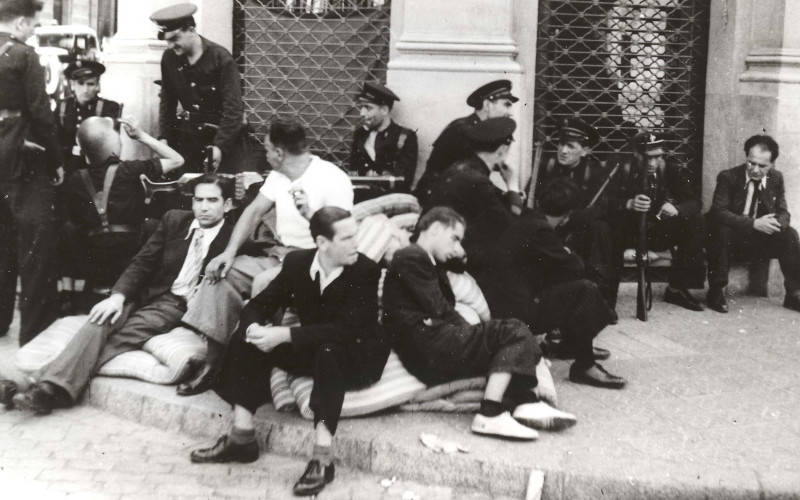From 16 to 19 June 2015, the Universitat Autònoma de Barcelona (UAB) hosted the Third International Congress Strikes and Social Conflicts, organized by the IASSC,and the Centre d'Estudis sobre les Èpoques Franquista i Democràtica de la Universitat Autònoma de Barcelona (UAB-CEFID).
The onset of the crisis in 2008, initially affecting major capitalist countries, has brought to the forefront socio-political and economic transformations infused with historical ramifications; a process which in some regions of the globe began in the 1990s. The changes imposed by the crisis ignited the resurgence of social protest as one of the main mechanisms reshaping present day society. In spite of the resurgence of social movement protest, over the last decade research on social and political protest has generated albeit limited scholarly investigation. The current prevalence of social and political protest, however, make it an important field of study to better understand both our present and future.
It is in this context that the Third Conference on Strikes and Social Conflict was held in Barcelona, one of the epicentres of the new wave of protests, initiated with the emergence of 15M, the movement of indignados in 2011. In this way the conference sought to prioritize the debate that examines the role of social protest and policy in times of intense economic, social, political and cultural upheaval. Simultaneously, the conference drew upon approaches that integrate distinct areas of research and accumulated knowledge that reflect the diversity and impact of socio-political protest: from their core components to aspects that have been considered marginal; all of which are relevant for a comprehensive understanding of the phenomenon.
A far reaching historical understanding of both past and present acknowledges that there are no singular periods more relevant than others: all past contains the seeds of the present. In this sense all historical periods will be considered as well as contributions from a comparative perspective, thus shedding new light on various historical processes. In the same way, it was our desire that the conference became a space that enhances a mutual understanding of the historiographical traditions developed in different countries.
A new historical period demands scholarly inquiry that can keep up with the new challenges placed before us and in this sense construct a new research agenda where strikes and social conflicts play a key role.
The contents of the meeting were organized in ten thematic axes that dealt with various issues related to the central theme of the congress: economic crises, urban social movements, agro-rural conflict, social identities, migratory processes, movements of sexual orientation and identity of gender, protest in the countries of the socialist camp, political change, conservationism and organizational forms.
See the full text of the Call for papers
Inaugural talk by Josep Fontana
The inauguration ceremony, took place on the 16th, featuring the interventions of the rector of the UAB, Ferran Sancho; the dean of the Faculty of Philosophy and Letters, Joan Carbonell; the dean of the Faculty of Translation and Interpretation, Laura Santamaría; the director of CEFID, Carme Molinero; and the director of the Democratic Memorial, Jordi Palou-Loverdos. After which Josep Fontana, emeritus professor of history at the UPF, delivered the inaugural lecture.
Proceedings
See the proceedings on the website of the Universitat Autònoma de Barcelona

